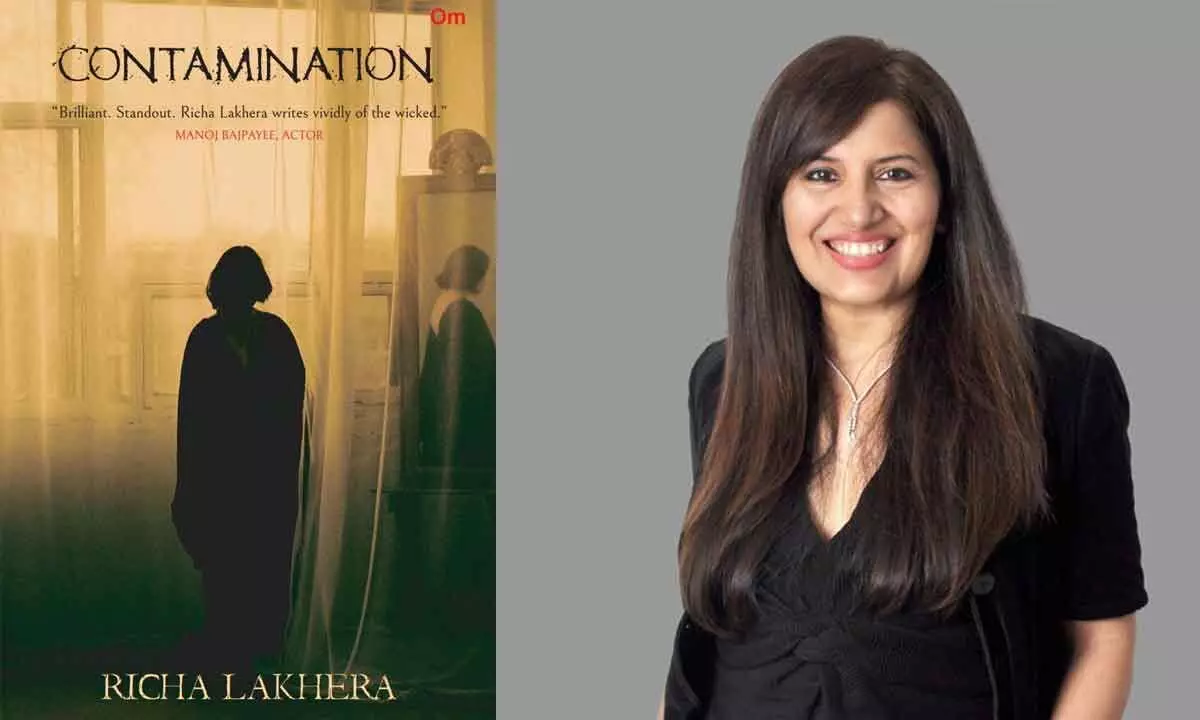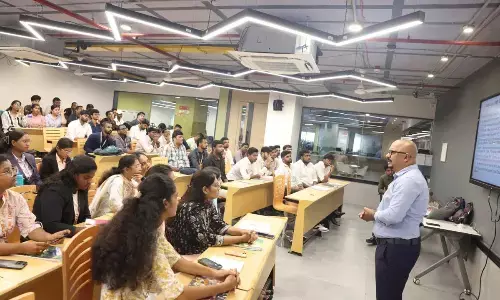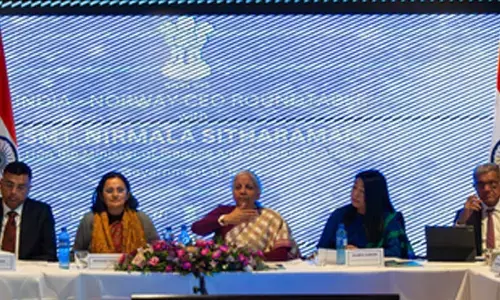For Richa Lakhera, heroism is gender agnostic

Richa Lakhera
Richa Lakhera, the bestselling author, has just launched her latest supernatural-combat, fantasy-adventure fiction novel, 'Contamination.'
Richa Lakhera, the bestselling author, has just launched her latest supernatural-combat, fantasy-adventure fiction novel, 'Contamination.' The book is a spine-chilling trip into the realms of supernatural and horror, published by Om Books International, one of the significant English-language commercial publishers in the Indian sub-continent. Richa is an award-winning television journalist who has spent over a decade as Deputy Editor & Senior Correspondent. Richa Lakhera is no stranger to fiction; this is her sixth book, and she has written bestselling books such as 'Hungry Gods', 'Item Girl', and 'Garbage Beat'.
In an exclusive conversation with 'The Hans India' Richa shares about her journey. Let's have a look into it.
How is Contamination different from other books?
Contamination, pits modern evil against ancient powers, is played out in a modern setting but also the realm of the Supernature. It is India's first militia horror. Grenades, guns, and ghosts and fronted by a female hero. Contamination—is a story of people traumatized by war and tormented by supernatural creatures. Bullets fly, grenades explode, body count rises and then come the dark forces with their phantasmic astras.
In your book, Amba is fighting ancient evil power in modern set up, what makes Amba the supernatural combat that she is?
Much like the mythologist Joseph Campbell's monomyth, which is the skeleton for many good vs evil stories, our hero Amba's journey follows the classic Campbell template. Amba is a reluctant hero, her nights are troubled by disturbing dreams that often take her into parallel universes. The departure from an ordinary normal life is forced upon her in stages, by the ordeals she undergoes, including the brutal killing of her parents. Amba has no answers why she is different. Like any ordinary girl – she wants to fit in because to be so different is to be marked. The initial series of traumatic events—is the call which necessitates action.
How is Amba, the hero different from male heroes?
There is no separate uniform for a 'female hero' and a 'male hero'. In any case a hero will not allow herself to exist in an allotted space with some laxman rekhas drawn around her; heroism is gender agnostic.
In 'Contamination', the hero is female. There is no denying that the social structure across worlds largely retains the form men have imprinted on it. Women assert themselves but it is a hero who overcomes the age-old specification that confines them in their femininity as defined by politics of gender or religion or beliefs or myths.
Our hero Amba's strength I think has both the depth of specificity and emotional resonance required. She is not afraid to ask for help like a true hero. She gets frustrated she fails. She never gives up. Amba, represents change.
Do you think film makers or series producers are able to do justice with female characters and women centric stories?
Yes and no. Our stories have a sorry record of catering to toxic masculine binaries–well known film-maker Prakash Jha once said, that 'in most stories Women are treated as pets or Devis'. Despite changing roles images used to define woman's role are largely stagnant. Invoking the true lens of power struggle of the female genders leaves much to be desired.
Cinema ideally should have been be the first to question the narrow space allotted to the female depiction based on established social, moral, legal, sexual orders. But commercial concerns play a large part in the maintaining of the status quo. Since our social structures retain the form men have imprinted on it, so in our stories even if women are shown to assert themselves, but they are not allowed to sufficiently overcome the age-old specification that confines them in their femininity. And films reflect that.
There have been departures. Recent times specially OTT content which caters to a global audience the women characters are coming out in their own whether it is 'Geeli pucchi' to 'Bombay Begums', 'Delhi crimes', 'Aarya', 'Sherni' to 'Four More Shots', 'Leila' or 'Aranyak' or 'Hush Hush'.. the list goes on and on ... We are seeing lots of meatier roles, par parity, raw relatable and delightfully flawed characters, ageism is taking a back seat.
I think most audience is exhausted watching testosterone! And that is why more makers are telling women-oriented stories and audiences are tuning in across platforms—Women do not necessarily have to be the perfect wife, the perfect homemaker, or the perfect mother. They can be flawed. Women are owning their bodies and their choices and all of this is slowly allowing for diverse characterization of women in cinema as well as OTT.
For 'contamination' the setting is current but the plot is around supernatural and fantasy, how do you view this genre going?
India, the largest film industry of the world, has been largely disinterested in the superhero fantasies or the supernatural films—the kind of films we see in Hollywood. One would think that was because Indian audiences were not keen on fantasy or supernatural. I think that is changed in recent time more sharply. People are opening up to watching films with mythological, supernatural and nationalism themes. There is a distinct shift in taste…so we have big budgets being invested now in such films and after success of Ayan Mukherjee's 'Brahmastra' we have several more big-ticket films of the fantasy and supernatural world line up. But in the end whether it's a fantasy or supernatural the audience is still heavily invested in the concept of justice – they may not care as much about a happy ending but justice, yes. We still don't have a The Lord of the Rings and Alice in Wonderland, but we have had from We have Hindi films like the hugely successful Koi…Mil Gaya, Krrish to Bhool Bhulaiyya sequels. I think filmmakers are now more than ready to test the audience's commitment to the rational by introducing the fantastic into the narrative.









